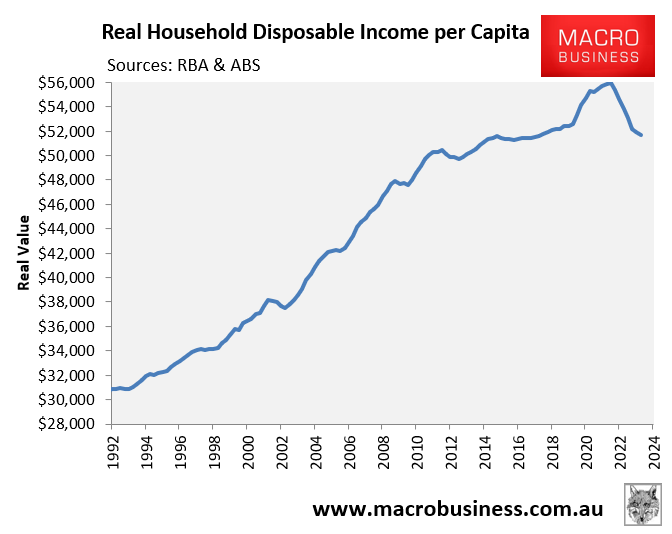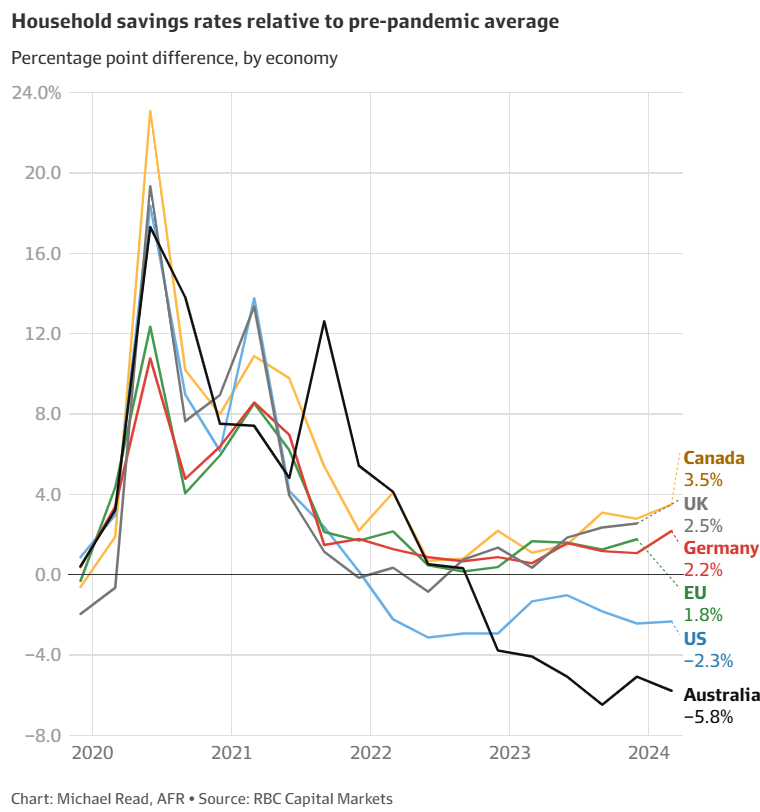Research undertaken by RBC economists Su-Lin Ong and Robert Thompson, reported in The AFR, has found that Australian households are saving much less than their global peers due to the impact of bracket creep and high mortgage repayments on their disposable income.
RBC estimates that households saved just 0.9% of their disposable incomes in the three months to March, around 5.8% below the pre-pandemic average. This is at a time when many of their international peers are saving more than they did before the pandemic.
Su-Lin Ong attributes the decline in savings to Australia’s world-record decline in household disposable incomes.
Advertisement

“This likely reflects the unusual period of negative real household disposable income for a sustained period. Households have, accordingly, saved less as well as spent less”, she said.
“Bracket creep amid multi-decade-high inflation has been the biggest drag on real household disposable income [since mid-2022]”.
Advertisement
“Households may have been pushed into paring back their savings to meet more costly essential expenditure”, Ong said.
Australians have faced a perfect storm that has caused a record decline in household disposable incomes:
- The sharp 7.1% decline in Australian real wages.
- The circa 30% increase in average mortgage payments.
- The hyper-inflation of housing rents.
- The increase in income taxes via bracket creep and the expiry of the Lower-Middle Income Tax Offset.
Ong also warned that households may have to cut back on spending and start saving more if the job market deteriorates more quickly than expected.
Advertisement
That said, savings and consumption will receive support next month from the arrival of the Stage 3 tax cuts, with the average Australian worker expected to keep an additional $1888 of their salary in 2024–25 compared to the current financial year.
Expected interest rate cuts late this year or early next year will also bolster disposable incomes.
Nonetheless, this decade is shaping up to be the worst for household income growth in 70 years of data.
Advertisement
Australians are set to experience a second consecutive ‘lost decade’.

